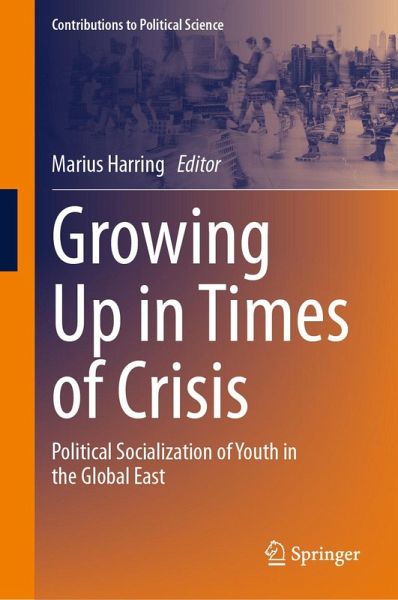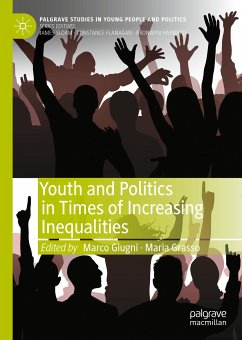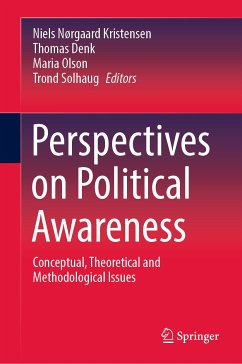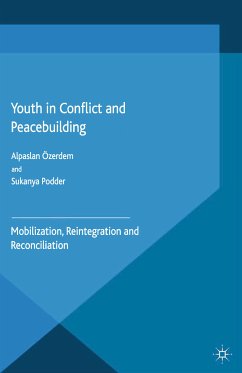
Growing Up in Times of Crisis (eBook, PDF)
Political Socialization of Youth in the Global East
Redaktion: Harring, Marius
Versandkostenfrei!
Sofort per Download lieferbar
97,95 €
inkl. MwSt.
Weitere Ausgaben:

PAYBACK Punkte
49 °P sammeln!
This book discusses the living conditions and resulting political attitudes and participation patterns of young people, especially in the countries of the "Global East"-regions of the world that have so far received little public attention-and which subjects growing up in these countries to an in-depth analysis. Today's youth is coming of age in a climate of social disparity and heterogeneous living circumstances. Amid the economic and political uncertainty in many of the world's crisis countries, adolescents are faced with a multiplicity of challenges which may manifest in social exclusion, u...
This book discusses the living conditions and resulting political attitudes and participation patterns of young people, especially in the countries of the "Global East"-regions of the world that have so far received little public attention-and which subjects growing up in these countries to an in-depth analysis. Today's youth is coming of age in a climate of social disparity and heterogeneous living circumstances. Amid the economic and political uncertainty in many of the world's crisis countries, adolescents are faced with a multiplicity of challenges which may manifest in social exclusion, unequal access to education, and high youth unemployment rates. The political circumstances from which these effects arise are varied in nature and include attempts at democratization and repressive tendencies in Arab states, financial crises in Southern Europe, and the growing alienation of South-Eastern Europe and the countries of the former Soviet Union from the European Union as a result of disappointed expectations.
The empirical data basis of the individual articles is provided by current country-specific youth studies. The book is divided into three sections. Part One outlines the differences in the economic and political status of young people in selected countries. Part Two focuses on the political and social involvement of adolescents. Finally, Part Three discusses adolescents' responses to the situations in their home countries. A detailed presentation of the political behavior of young people in crisis countries, this book will be useful to students and researchers interested in political science, public participation, youth welfare, education, and social work.
The empirical data basis of the individual articles is provided by current country-specific youth studies. The book is divided into three sections. Part One outlines the differences in the economic and political status of young people in selected countries. Part Two focuses on the political and social involvement of adolescents. Finally, Part Three discusses adolescents' responses to the situations in their home countries. A detailed presentation of the political behavior of young people in crisis countries, this book will be useful to students and researchers interested in political science, public participation, youth welfare, education, and social work.
Dieser Download kann aus rechtlichen Gründen nur mit Rechnungsadresse in A, B, BG, CY, CZ, D, DK, EW, E, FIN, F, GR, HR, H, IRL, I, LT, L, LR, M, NL, PL, P, R, S, SLO, SK ausgeliefert werden.












